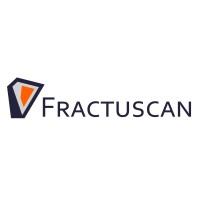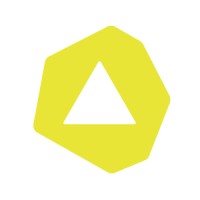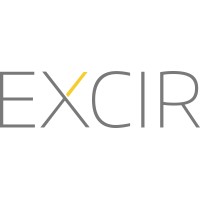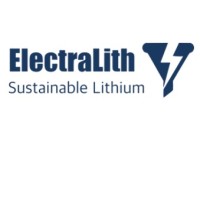From carbon-negative lithium to quickly assessing the safety of mines, here are seven university spinouts that could transform the mining industry.

It might not generate the buzz of sectors like artificial intelligence but mining is a crucial industry in the global economy and human progress — it gives us everything from lithium powering our electric vehicles to gold in circuit boards. But the lack of attention by the public at large doesn’t mean that there is no innovation happening — in fact, this industry, like most, is currently also grappling with its environmental impact and figuring out how fewer and more efficient resources could be stretched further. And if you look closely, some of these technologies don’t just have applications in mine shafts, but also in seemingly unrelated sectors like forestry management and, yes, dentistry.
Here are seven university spinouts making their mark on the mining industry — and beyond.
Travertine Technologies
- Founded: 2022
- Equity funding to date: $3m
- Location: US

Sulphuric acid is an important chemical used in mining — it is used, for example, to leach copper oxide minerals. But it takes three to three and a half tonnes of sulphuric acid to turn ore into one tonne of copper metal. If we could use the hundred of millions of tons of sulphuric acid produced every year to decarbonise the industry, it would be a significant leap forward.
Travertine Technologies, founded in January 2022, promises to do exactly that. The US-based company was launched last year to commercialise research by founder Laura Lammers, who left her position as assistant professor at University of California, Berkeley in June 2022 to become chief executive of her company. Grantham Environmental Trust and Clean Energy Ventures co-led a $3m seed round that same month.
Travertine uses an electrochemical process that mimics the earth’s natural weathering cycle to remove carbon dioxide from the air and turn it into carbonate minerals for permanent storage. The process recycles and reuses sulphate waste (reducing the risk of water contamination) and creates sulphuric acid, green hydrogen and, as a byproduct, oxygen. It means the approach, essentially, creates carbon-negative sulphuric acid.
Outside of mining, Travertine is also looking at agriculture where sulphuric acid is important in fertiliser production. The company, based in Boulder, Colorado, has been using the seed round to gear up for a pilot-scale implementation this year.
Planetary Tech
- Founded: 2019
- Equity funding to date: $3.6m
- Location: Canada

Planetary Tech tackles the problem of tailings, which are waste minerals left after the commodity of value is extracted from ore, and it does this in an ingenious way: it uses the tailings to enhance the alkalinity of oceans (in other words, increase their ability to capture carbon dioxide).
How does it work? Planetary Tech extracts key parts of the mine tailings, including metals such as nickel and cobalt (which can be used to produce batteries), and puts the remaining purified metal salt solution into an electrolyser to split it into green hydrogen and alkaline hydroxide. It then moves the alkaline materials into the ocean, using existing marine outfalls (pipelines to discharge waste), where it boosts alkalinity.
The Canada-based company’s co-founders include chief technical officer Greg Rau, who has been a senior research scientist at University of California, Santa Cruz since 1988. Its research partners also include Dalhousie University and University of Miami.
Innovacorp and Apollo Projects were among the backers of a C$7.8m ($6.2m) round in March last year, which included C$3.6m in grant funding.
Fractuscan
- Founded: 2018
- Equity funding to date: not disclosed
- Location: Finland

Finland-based Fractuscan specialises in creating high-resolution 3D models of environments like quarries and mines to assess the risk of rockfall or slope stability. The company — co-founded by Aalto University researchers Lauri Uotinen and Henri Munukka — uses unmanned aerial vehicles to collect data and exploits photogrammetry (a process to turn photos into 3D models) to calculate rock mass parameters.
Notably, it can do all of this very quickly and there are applications outside the mining industry, too. The company showed, for example, that it could drive past a rock-cut wall at a speed of 30km/h to 40km/h and collect photogrammetric data that then enabled it to assess the wall’s stability.
Fractuscan doesn’t appear to have raised any equity financing yet, though it has secured an unspecified amount of grant funding through the EU’s European Institute of Innovation and Technology.
Arca
- Founded: 2021
- Equity funding to date: not disclosed
- Location: Canada

Greg Dipple, a professor at University of British Columbia, figured out that ultramafic tailings, a byproduct of metal mining, could be used to turn mines into carbon sinks. Ultramafic rocks are high in magnesium and have high alkalinity, and they naturally react with carbon dioxide in the air to mineralise it.
The process is usually very slow, but low-cost interventions like churning tailings to a powder and adding or removing water can speed it up by a factor of three to four. Arca, the company co-founded by Dipple and two fellow researchers, says such ultramafic mine tailings could sequester tens of thousands of tons of carbon dioxide per year.
Arca, known as Carbon Minerals from September 2021 to January 2023, has secured a $1m award from Xprize but doesn’t appear to have raised equity funding yet.
Excir
- Founded: 2018
- Equity funding to date: not disclosed
- Location: Canada

Sometimes the way to mine responsibly is not to mine at all: a lot of precious metals, like gold, have already been dug up and made their way into devices, which inevitably turn into electronic waste (e-waste). Rather than continually mining more, we could extract them from e-waste. But historically, that hasn’t been easy.
Excir, a Canada-based company launched out of University of Saskatchewan, has developed a lixiviant (a liquid medium to extract metals) that is eco-friendly and that it claims can be recycled with a negligible environmental impact. The lixiviant allows Excir to separate e-waste into base metals, precious metals and plastics. It then also ensures that each of these metals is traceable in future applications.
Excir signed a deal with the Royal Mint (which manufactures the UK’s coins and notes) last year to build a plant that will recover gold from the circuit boards of phones and laptops.
Beyond e-waste, the startup is also looking at spent catalysts, with an initial focus on catalytic converters (the part of the car exhaust that converts toxic gases from the engine into less-toxic pollutants).
ElectraLith
- Founded: 2021
- Equity funding to date: $1.55m
- Location: Australia

Your EV may not be spewing pollutants into the atmosphere, but the battery inside is far from clean because lithium mining is a dirty business: mining it typically requires huge amounts of water and the chemicals can cause pollution. ElectraLith, an Australia-based spinout of Monash University, says it’s found a more sustainable way to mine the critical resource: an electro-filtration technology for extraction and refining.
The technology uses a membrane separation process that isolates pure lithium salts from contaminants like magnesium, calcium, potassium, boron, aluminium and sodium. The single-stage process consumes no acid, base or water and, if the electricity used is renewable, would produce carbon dioxide-free lithium.
Mining company Rio Tinto supported a A$2.25m ($1.55m) seed round in June 2022, which also saw participation from the university’s Monash Investment Holdings and commercialisation firm IP Group Australia.
Atium
- Founded: 2018
- Equity funding to date: not disclosed
- Location: Sweden

What do mining and dentistry have in common? Mercury. The metal is used in small-scale gold mining in particular, and if it seeps into the environment it can cause huge damage (including to humans, who may for example consume mercury-poisoned fish). In dentistry, mercury is present in amalgam and most countries mandate a filter to ensure metal particles from dental surgeries don’t leak into the water supply.
Atium, spun out of Chalmers University of Technology, is targeting both of these industries with its electrochemical filter that only removes mercury (thus saving resources) and boasts a removal rate of 99%. In dentistry, its filter would complement existing products.
Stena New Ventures, the corporate venturing arm of metal recycling company Stena Metall, contributed to a pre-seed round of undisclosed size in January 2022, when the university’s investment arm Chalmers Ventures, Gladium and Jan Burenius also took part. It followed a similarly undisclosed sum from Chalmers Ventures and Gladium in 2020.
Disclaimer: This list is for informational purposes only. It does not constitute investment advice.









